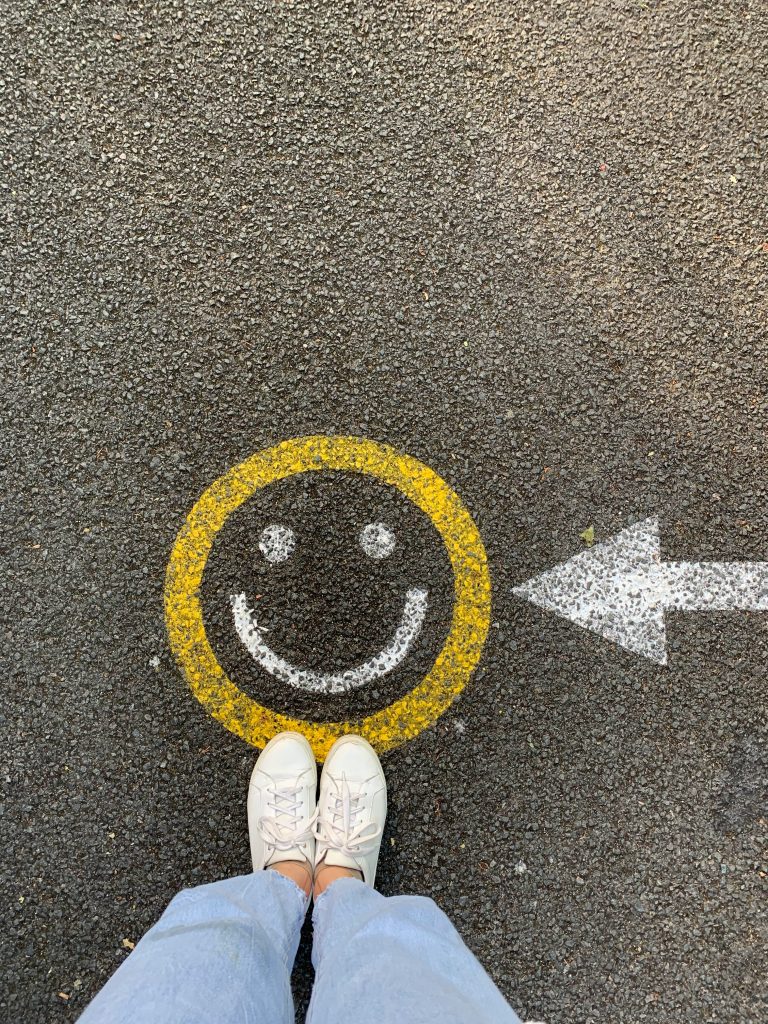
Laughter Consultant, Joe Bluett
“Laughter has a way of instantly connecting people and is one of the most basic and fundamental ways in which we communicate as human beings. But more than that—laughter can increase confidence, self-esteem, creativity, positivity and resilience, bringing positive changes to all aspects of our lives.”
I think this says it all. There’s something indescribably great about laughter. The way it connects us to people. Making us feel, if even for just a moment, like we are a part of something bigger. There’s a natural lightness that seems to come when we laugh. A feeling of buoyancy. It’s such a wonderful feeling that I wrote a whole blog post about it.
For more on why laughter is the best medicine read here.
What Are The Benefits?
Laughter has benefits for us across the board. Whether it’s physical, social or emotional. Here are just some of the benefits:
The Physical Ones
Laughter increases how much air we take in. And as the, hopefully, clean air is rich in oxygen it stimulates our hearts, lungs and other or organs. It can also help relieve our stress response. Following laughter our heart rate and blood pressure drop helping us to feel more relaxed and calm. Linked to this, laughing can soothe tension as it stimulates our circulation and helps our muscles to relax (for up to 45 minutes!). This triggers our bodies natural ‘rest and digest’ system, known as our parasympathetic nervous system. This is the system that kicks in after a threat or stressful event has passed and allows our body to find its homeostasis and relax once more. Lastly, laughter releases endorphins which are our ‘feel-good’ chemicals helping us to feel better and even relieve pain temporarily.
For more on Understanding Our Bodies Stress Response read here.
The Emotional Ones

Laughter has benefits for our mental health as well. Laughter is linked to play and creativity. Both of these activities can help us problem-solve better. Using ideas and techniques we might otherwise miss. The ability to problem-solve creatively and not take life too seriously can help build your resilience levels. Helping you to see the funny side but also focus on a positive outlook switching from catastrophizing or feelings of failure or disappointment to a more optimistic and solution-focused perspective. Laughter or humour can also help us find distance from a problem. Giving us an often much-need break. But also a moment to escape any difficult feelings and allowing us to perhaps see the problem or emotion in a new light. When we gain some distance from our feelings we can often diffuse some of the emotion, helping us feel more level-headed.
For more on 4 Ways to Check In with Your Mental Health read here.
Laughing acts as a bridge or point of connection between people. It can help us settle into a new social environment helping us feel included which is integral to our mental health. Laughter can also boost our social circle helping to dissipate loneliness; a risk factor for our mental health. As above, laughter also helps us relax and recharge our batteries. It can reduce our stress levels and even provide energy and motivation. Or even change or improve our mood by holding distressing or inconvenient emotions at bay.
The Social Ones
When laughter happens in a group, we strengthen the bonds of friendship or companionship which already exist. But we can also reach out to others in this way and create new connections. A social connection made through laughter can be authentic and creates a ‘micro-moment of positive connection’. This inclusivity caused by laughter can help release our inhibitions and create a feeling of comfort. Whether that means we feel comfortable enough to be our true selves in the group. Or if it spurs us on to do something we fear. This may also occur as laughter and humour can help us be more spontaneous. The distraction provided my laughter can help us forget our fears and worries which are usually what holds us back. Lastly, laughter can be a powerful tool in social conflict. It can help lessen feelings of resentment or hurt. Or help break the ice when a relationship is at an impasse.
How to Bring More Laughter into Your Life
I think we could all do with more laughter in our life. Especially when we need an escape from thoughts or feelings that trouble us. Laughter is a habit that we can help cultivate by actively seeking ways to include it in our lives. Just like any skill or habit, practise makes perfect. So, try and be proactive by setting aside time to find humour or opportunities to laugh more. Whilst this may seem like another thing to add to our ever growing to-do list. Laughter is a great form of self-care so it’s worth investing in. But if we’re super busy consider how you can add laughter into activities you already invest in.
#1 Laughter Yoga
Laughter Yoga embraces the help benefits of laughter outlined above. It was created by physician Madan Kataria from Mumbai, India. It embraces traditional ideas of breathing and movement used in yoga. Some of the moves included seek to mimic the physical movements our bodies undergo when laughing. And includes opportunities for stimulated laughter. Research suggests that even if we force ourselves to laugh, rather than laughing naturally, we still gain some of the benefits. And that laughing with a group can help make us laugh too. Studies showed that when we hear others laughing our brains prepare our own facial muscles in advance to us joining in. And, whilst this may not seem for you or you’re unsure of the efficacy, the impact of laughter yoga for depression has been proven. With one study in the International Journal of Geriatric Psychiatry finding it was more effective for alleviating depression in older women than physical activity.
#2 Laughter Therapy
This form of therapy was created by psychologist Steve Wilson when he created the World Laughter Tour. It aims to share the benefits of humour and laughter that we’ve discussed above. The tour itself promotes the practise of laughter therapy and offers a series of programs and events. The overall aim is to teach people to laugh without a stimulus e.g. a joke. And helping stimulated laughter to become genuine.
#3 Comedy For Mental Health
The Association for Applied and Therapeutic Humor (AATH) is a non-profit that seeks to raise awareness of the impact humour can have on change. It encourages the use of humour in psychiatry to help treat mental illness. Meanwhile, Stand Up for Mental seeks to show the impact comedy can have on our wellbeing. Founder, David Granirer, runs courses encourage people to turn their experiences with mental health problems into comedy routines to help their own recovery.
#4 Comedy Resources

Whilst we may wish to try one of the above options. There are other, perhaps smaller, ways we can bring laughter into our lives. Ones which can work for us and our schedules. For example, you may wish to encourage more laughter with your group of friends. Whether that means everyone bringing their silliest joke or funny story to a dinner party or brunch. A movie night of comedy only shows. Playing a silly board game or attending an Open Mic Stand Up locally. Laughing with others is one of the best ways to boost our capacity for laughter as we’re 30x more likely to laugh when we are with other people.
But laughter can also be a solo activity. You can watch your favourite comedian. Many now have their shows recorded and available on streaming platforms. Or clips can be found on YouTube. It seems like everyone has a podcast nowadays. So dig deep and find some that make you laugh. They could be hosted by comedians or on a silly or funny topic. You could listen to these whilst doing a non-fun activity to build it into your routine. Perhaps listening whilst commuting, working out or doing chores. Many comedians have also written books which you may wish to read for some light entertainment. Or listen to them as an audiobook so you can go hands-free and listen whilst you’re busy. Google Home will even send a daily joke to your phone, as I’m sure many applications will nowadays.
What Stops Us from Laughing or Finding Something Funny?
Have you ever met someone who insists they just don’t find things funny? Or seem to have no sense of humour. Some of us take ourselves too seriously (or just seriously enough in our opinion) but this can stop us from letting go and laughing. And inhibiting our own sense of humour. This can come from a fear of embarrassment or making a fool or ourselves. We may wish to check in with ourselves that we’re letting the laughter in. And actively trying to, in spaces or with people we feel safe to do so.
If this sounds like you, some of the ideas below may help. Although I think that good tips for all of us looking for some more laughter. To start with you could try taking the sting out of an embarrassing moment by sharing it with someone you feel comfortable doing so. If you could laugh about it together it’s a starting point to taking yourself less seriously. Or perhaps try and look for humour in situation; as appropriate. Sometimes when things don’t go our way it’s easy to see the annoyance or feel the frustration. But could we see the funny side or the irony instead? By sharing it with people we can encourage ourselves to see the humour too.
Charlie Chaplin was a great believer in laughter stating “a day without laughter is a day wasted” so look at the tips above. Try and commit to trying at least one strategy to bring more laughter into your life. When we laugh more we’re also letting the joy of life in. And if we can share it with others, even better.
How do you feel when you’ve had a good laugh? What’s your go to to increase the laughter in your life? Let us know below!

Wonderful post! I am a big fan of laughing. I have never heard of laughing yoga, but I can’t wait to check it out. Thanks so much for sharing!
I’ve not tried it but I enjoy yoga so it’s probably worth a go!!!
I can fake laugh, but I’ve never got anything from. It seems alien to me that you could get anything from fake laughing, especially when compared to genuine laughter. I think I’ll stick to the real deal, as laugher is pretty much the only time I don’t feel depressed, but only when it’s real. I think I’ll stick to comedy over laughter therapy
Definitely the real deal is best when you can have it! I love watching a favourite comedian when I’m feeling down
I like that “rest and digest” system term. laughter is the best medicine and I highly recommend it for lower stress and mental health.
Helpful article !
Regarding the point – what stops us from laughing -….
Well, throughout the day we are wearing mask (not Covid-19 related) of a responsible parent, senior executive, etc. Therefore we are unable to enjoy laughter openly. And even if we laugh, we do so hesitantly.
And yes, I see comedy serials, cartoon clips, especially Tom n Jerry, Laurel N Hardy etc. to reduce the stress on my mind.
Thanks again.
That’s so true. True laughter isn’t always appropriate to certain roles we have. Hopefully we all have places we can unmask and truly laugh. I definitely can’t enjoy myself and laugh if I don’t feel comfortable with who I’m with
Agreed. I can always tell because I feel like I should be laughing but I’m too uncomfortable. But my true laughs, the deepest ones are always with people who I am most myself with. It’s a really good litmus test to how you feel around a person or group of people.
I’m so glad that comedy is a part of your stress management. It’s one I often forget to make use of. And whatever kind of mask, literal or metaphorical, it definitely takes some of the joy out of life at times.
Cool post. I didn’t know that it was an issue if people couldn’t laugh. I knew it was a bad sign, but I didn’t understand the extent. I’d never heard of laughter yoga either, but I will see if I can find a class in my area.
Good luck! Let us know if you do and how you find it. There may be some free videos online too but I’d check that the instructor is reliable first.
i am so glad you wrote about this. i am definitely a big believer in making sure to laugh every day and will check out your tips! any recommendations for some good comedians to watch?
Thanks! I really like Sara Pascoe and Sarah Millican. I watch a lot of the latter on YouTube as there are loads of short clips which are good for a quick injection of comedy in your life. But there are some great comedy podcasts or TV shows. I often watch old re-runs of Mock the Week. It’s a good place to find new comedians to enjoy. Old faves of mine are Ed Byrne and Micahel McIntyre
What a great post – I learned a lot! I knew laughing was good emotionally and socially, but I never really knew the actual science behind it physically! Thanks for sharing 🙂
My pleasure. So glad this post was informative!